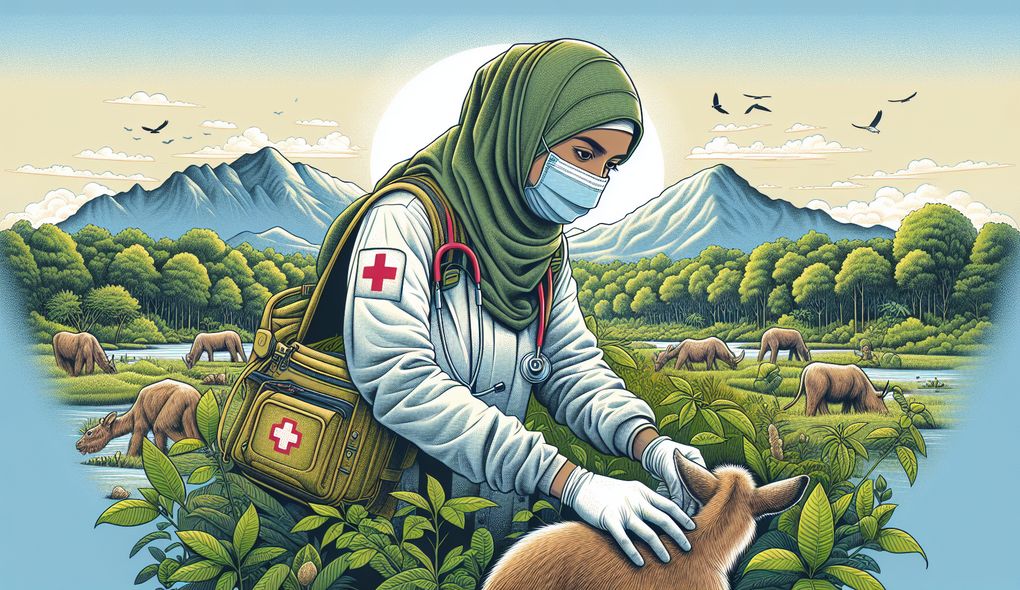How do you make decisions in unpredictable and resource-constrained environments?
SENIOR LEVEL

Sample answer to the question:
In unpredictable and resource-constrained environments, I make decisions by carefully assessing the situation and prioritizing the most critical needs. I draw on my experience and knowledge of wilderness medicine to quickly evaluate the risks and potential outcomes. Effective communication is crucial, so I consult with my team to gather insights and collaborate on the best course of action. Additionally, I am skilled at improvisation, adapting my approach based on the available resources. I also stay updated on the latest medical techniques and technologies for resource-constrained settings to make informed decisions.
Here is a more solid answer:
In unpredictable and resource-constrained environments, my decision-making process involves several key steps. Firstly, I assess the situation by carefully analyzing the available resources, potential risks, and desired outcomes. Drawing on my extensive knowledge of wilderness medicine, I prioritize the most critical needs and develop a plan of action. I believe in open communication, so I collaborate with my team to gather insights and alternative perspectives. In resource-constrained settings, improvisation is often required, and I am adept at finding creative solutions to make the most of the available resources. Additionally, I ensure that I stay updated on the latest medical techniques and technologies for resource-constrained settings, which further enhances my ability to make informed decisions.
Why is this a more solid answer?
The solid answer expands upon the basic answer by providing more specific details and highlighting the candidate's expertise in wilderness medicine. It also emphasizes the candidate's ability to adapt to challenging situations and their commitment to staying updated on the latest medical techniques. However, it can still be improved by including examples of past experiences in unpredictable and resource-constrained environments.
An example of a exceptional answer:
In unpredictable and resource-constrained environments, decision-making becomes even more critical. Drawing on my extensive experience as a Wilderness Medicine Physician, I have developed a systematic approach to navigate these challenging situations. Firstly, I gather as much relevant information as possible, including assessing the available resources, understanding the nature of the emergency, and evaluating the capabilities of the medical team. Based on this comprehensive assessment, I analyze the potential risks and outcomes to prioritize the most urgent needs. Open and effective communication is crucial, so I engage in regular discussions with my team to gather insights, ensure everyone is aware of the plan, and address any concerns or alternative perspectives. In resource-constrained settings, I am skilled at improvising and adapting my approach based on the available resources, leveraging my knowledge of alternative medical techniques or utilizing nearby natural elements. To further enhance my decision-making abilities, I actively participate in ongoing training and professional development opportunities, staying abreast of advancements in wilderness medicine and resource-constrained care. By continuously updating my knowledge and skills, I can confidently and decisively make the best possible decisions even in the most challenging and unpredictable environments.
Why is this an exceptional answer?
The exceptional answer provides a comprehensive and detailed response, showcasing the candidate's expertise and experience as a Wilderness Medicine Physician. It demonstrates a systematic approach to decision-making and emphasizes the candidate's ability to gather and analyze information. The answer also highlights the candidate's effective communication skills, adaptability in resource-constrained settings, and commitment to ongoing learning and professional development. Overall, it provides a strong example of decision-making in unpredictable and resource-constrained environments.
How to prepare for this question:
- Familiarize yourself with the principles and practices of wilderness medicine, including emergency techniques and resource-constrained care.
- Reflect on past experiences or scenarios where you have made decisions in unpredictable environments. Prepare specific examples to highlight your decision-making skills and ability to adapt.
- Stay updated on the latest advancements in wilderness medicine and resource-constrained care through continuous learning and professional development.
- Practice effective communication skills and teamwork, as these are essential in making decisions in challenging and unpredictable environments.
- Consider participating in wilderness medicine courses or simulations to further enhance your skills and demonstrate your commitment to the field.
What are interviewers evaluating with this question?
- Decision-making skills
- Ability to adapt to unpredictable environments
- Knowledge of wilderness medicine
- Communication skills
- Ability to work in resource-constrained settings

